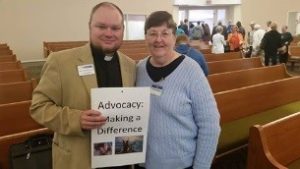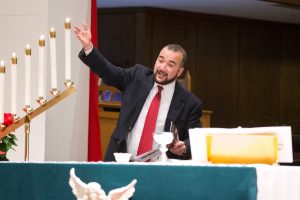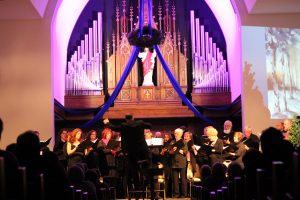From 2011 to 2015, the ELCA Malaria Campaign raised both awareness about malaria and gifts to support companion churches and partners in fourteen countries to combat this disease. These gifts continue to support projects in countries faced with the daunting challenges posed by malaria. This World Malaria Day, we celebrate this important work that continues through the ELCA’s companion churches. As we commemorate World Malaria Day this year, we do so with firm resolve to keep up this important work. According to the World Health Organization, there were 216 million estimated cases of malaria in 2016 (the most recent year data is available.) This is a significant decrease from the 237 million cases WHO estimated for 2010, which enlivens hope that we can reduce vulnerability to this disease. Yet, we also know that progress has slowed. The 2016 estimates represent an increase from 2015, when WHO reported 211 million cases.
Clearly, there is more to be done. But ELCA World Hunger, our partners, and our companions also celebrate the progress that has been made and the impact this work has had in communities. Below are updates from some of the countries where malaria work continues. For more on the malaria programs in Zimbabwe from ELCA staffmember David Mills, see this post.
Malawi
Income generation and savings is a key part of the Evangelical Lutheran Church in Malawi’s work, as well. In 2017, their village savings and loan programs reached more than 2,100 members, who collectively saved nearly $167,000 dollars. These savings have helped the participants—88 percent of whom are women—gain increased access to health services, loans, and education while improving the overall food security of their households. The members were also able to make improvements to their homes and purchase assets that will help them generate income. All of these results will help them be more resilient to malaria outbreaks.
Namibia
To reduce the population of mosquitos that carry the malaria parasite, removing brush and tall grasses that would allow standing water to collect near homes is critical. In Ruacana, 349 people from seven villages came together with the Evangelical Lutheran Church in Namibia (ELCIN) to implement a major cleaning campaign to reduce the risk of malaria. The Regional Councillors’ office helped by providing transportation for the large group. More than 100 participants joined in two other cleaning campaigns in Okongo and Engela districts, especially targeting the area around the hospitals in those communities.
Education about spraying continues to be a key priority for the ELCIN. When participants in their malaria program in Zambezi reported that many people refused to allow sprayer operators into their homes, the church began an intensive awareness campaign and hosted workshops with community leaders. With the knowledge they gained and the trust that was built in the workshops, the community leaders became active advocates for indoor spraying, assisting the program leads and offering support to sprayer operators. The ELCIN now reports that 89% of the homes in Zambezi have participated in indoor spraying, a key best practice in reducing the risk of malaria.
Zimbabwe
Malaria is a disease of poverty. On the one hand, the disease itself contributes to high rates of poverty because of lost productivity, lost wages due to illness or death, lower school attendance, and increased health care costs. On the other hand, poverty can also make a community more vulnerable to malaria by decreasing the availability of social services, including health care and prevention education.
This is why income-generating activities are a key part of the Evangelical Lutheran Church in Zimbabwe’s (ELCZ) response to malaria. In Hwange and Gokwe districts, community members took time to celebrate the hard work of people involved in the ELCZ’s livelihoods projects. In Gokwe, groups participated in field days at a local level, showcasing a variety of products, including organic honey, organic milled small grains, protein-rich nuts, sun-dried vegetables, and soups. Some of the products were collected and exhibited at a district-wide field day. The exhibit of products won an award for best exhibit in the social services category. More than just celebrating the work of the groups, the exhibits gave them an important opportunity for feedback on product quality and branding.
In Hwange, the ELCZ held a field day where groups could come together and share experiences and best practices. Groups also had the chance to showcase the products they had developed. The group members helped make the field day a successful celebration, mobilizing resources for food and prizes for the presenters.
The ELCZ’s work has made a tremendous impact on individuals and communities. Gogo Lucy Mloyi, a 60-year-old widow in Mfelandawonye, has been a member of a village savings and loan group since 2013. The group has been a blessing for Gogo Mloyi as she works to raise chickens for eggs and meat. Through her hard work and the support she has, Gogo Mloyi was able to build a six-room house, with rooms to rent for added income. She was also able to get electricity in her house to run a deep freezer where she keeps her chickens before they are sold. With the support from the village savings and loan group, Gogo Mloyi is able to meet her needs in her new home.

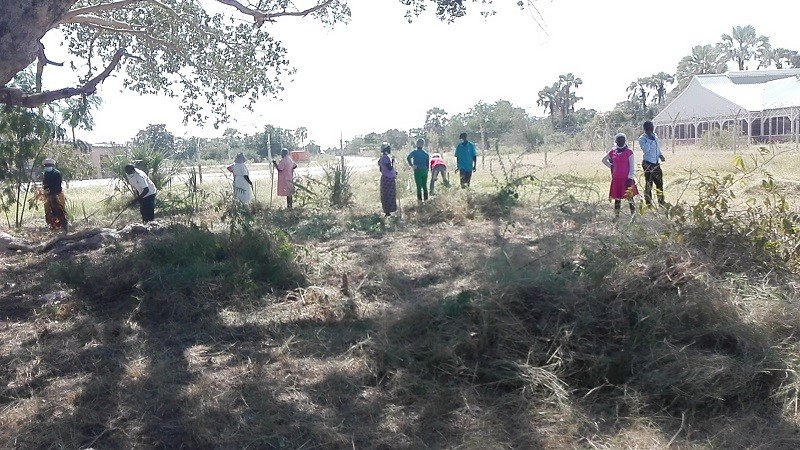
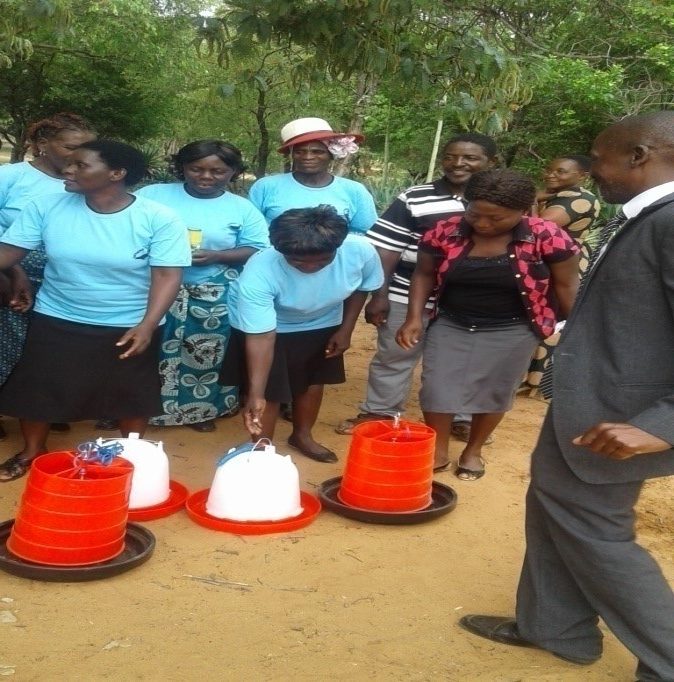










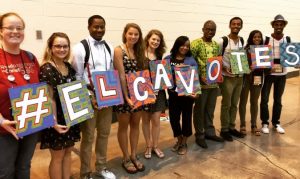
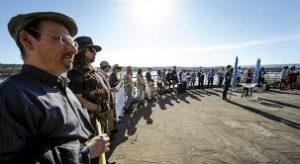 Advocacy, too, is an untying of tongues. It is spirit-inspired testimony to the God who justifies, who in turn sets us free to do justice. We advocate with and for our neighbors and the rest of Creation to preserve their dignity and protect their integrity. Faith-rooted advocacy is witness to our faith by proclaiming solidarity with the suffering of Christ’s body in the world and witnessing to God’s resurrection hope for a world transformed. This is evangelism and proclamation of the good news, just as surely as knocking on doors. Only this advocacy may take place at a town council meeting, a school board session or in the halls of the U.S. Capitol.
Advocacy, too, is an untying of tongues. It is spirit-inspired testimony to the God who justifies, who in turn sets us free to do justice. We advocate with and for our neighbors and the rest of Creation to preserve their dignity and protect their integrity. Faith-rooted advocacy is witness to our faith by proclaiming solidarity with the suffering of Christ’s body in the world and witnessing to God’s resurrection hope for a world transformed. This is evangelism and proclamation of the good news, just as surely as knocking on doors. Only this advocacy may take place at a town council meeting, a school board session or in the halls of the U.S. Capitol.
